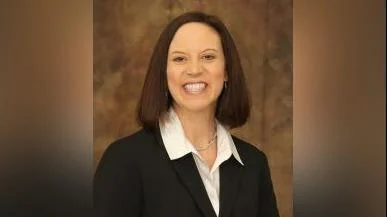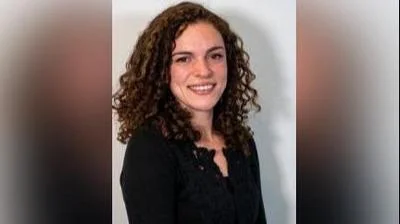Heather Bomstad grew up knowing she wanted to help people who were sick and in need of care. So she followed in her aunt’s footsteps and became a registered nurse, working her way up the ranks to where she is today – chief nursing officer for OSF Healthcare Saint Elizabeth Medical Center in Ottawa, Illinois and Saint Paul Medical Center in Mendota, Illinois.
Bomstad has seen many changes over the past two decades, and now she, along with many other nursing leaders across the country, are seeking ways to combat a worrisome trend when it comes to a nursing shortage.
“The state of nursing right now is definitely gone through its challenges, especially since the pandemic started a couple of years ago," she says. "Early on we didn't know what to expect out of it and it was just a whole different vibe, but then going through it and seeing how our patients were struggling and the very, very sick, and the high volumes that we were having really took a toll on nurses, which then has really made some nurses want to leave health care in general, unfortunately. Some just needed to do something different maybe in healthcare, but just a different type of nursing, which has made shortages in various areas of nursing.”
There are approximately 3.9 million registered nurses in the U.S., but the U.S. Bureau of Labor Statistics (BLS) predicts that more than 500,000 nurses will retired by the end of 2022. But there are other factors to the shortage as well, and the BLS estimates that more than one million new registered nurses will be needed to prevent a shortage.
“Burnout I would say is probably the number one reason that people are thinking long and hard (about leaving)," says Bomstad. "This is stressful work and it is, but yet very gratifying work, but many are wondering if they need to do something different. It breaks my heart to see nurses go into a whole different career path when you know, they set out to take care of people early on, but it's indeed happening.”
One way OSF HealthCare is bridging that gap is turning to graduating students from its two colleges of nursing, in Peoria and Rockford. The colleges offer students a variety of degrees and practical hands-on experience that has become more vital since the beginning of the COVID pandemic.
“Years ago, you could say that when we had new graduate nurses they tended to go to more of our medical floor or surgical floors. We always wanted them to get that experience first before going to any specialty, to an ICU to an ER to a pediatric unit, OB – whatever the case may be," says Bomstad. "But coming out of this, we're thinking differently. If their heart is set and their passion is to be in a certain specialty area, we are now hiring them into those areas.”
Health care leaders are taking a closer look at everything – including encouraging more flexible hours and work/life balance – to ensure the health and satisfaction of all nurses, both those new to the field as well as the long-tenured professionals.
Despite the many challenges, Bomstad says she wouldn’t change a thing in her career, and encourages others to seek out the many opportunities that exist in health care.
“I went into nursing to care for people and I would hope that every nurse that goes into it knows what they're getting into and that's the true reason – really caring for the patient, their families," she says. "They're coming to us in their most vulnerable time. They need that help, that communication, and it is still a very gratifying career to go into and I really hope and encourage young people to go into nursing. It is still a fabulous profession.”
The OSF colleges of nursing in Peoria and Rockford offer traditional and online BSN, MSN, and DNP degree programs for students interested in a career in nursing. The process deadline for the spring 2023 semester is December 1, 2022. For more information, visit Saint Francis Medical Center College of Nursing and Saint Anthony College of Nursing.
Original source can be found here.


 Alerts Sign-up
Alerts Sign-up